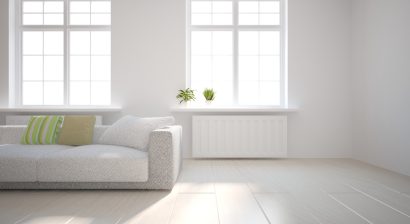Homeowner’s Guide to Gutters

Welcome to our comprehensive guide on gutter FAQs tailored specifically for homeowners! Recognizing the pivotal role gutters play in safeguarding your property from water damage is crucial for maintaining a safe and functional home.
To address your queries concerning gutter installation, maintenance, and common concerns, we’ve curated an extensive list of frequently asked questions.
In this resource, we provide expert advice and invaluable insights to assist you in ensuring your home remains dry, secure, and well-maintained. Whether you’re a first-time homeowner or an experienced one, rest assured, we’ve gathered all the essential information you need to know about gutters.
- What are gutters, and why are they important for my home? Gutters are channels attached to the edge of the roof that collect rainwater and redirect it away from the foundation of your home. They are crucial for preventing water damage to your walls, roof, and foundation.
- How often should I clean my gutters, and what happens if I neglect maintenance? Gutters should ideally be cleaned at least twice a year, in the spring and fall, to remove debris such as leaves, twigs, and dirt. Neglecting gutter maintenance can lead to clogs, water overflow, and potential damage to your home’s exterior and foundation.
- What are the signs that indicate I need to replace my gutters? Signs that your gutters may need replacement include rust, corrosion, cracks, sagging, or frequent leaks. If you notice any of these issues, it’s advisable to consult a professional for an assessment.
- What types of materials are used for gutters, and which one is best for my home? Common gutter materials include aluminum, vinyl, steel, and copper. The best material for your home depends on factors such as climate, budget, and aesthetic preferences. Aluminum is often preferred for its durability and affordability.
- Can I install gutters on my own, or should I hire a professional? While it’s possible to install gutters yourself, hiring a professional is recommended for ensuring proper installation and avoiding potential mistakes. Professionals have the expertise and tools needed to install gutters safely and effectively.
- How do I prevent clogs and blockages in my gutters? Regular gutter cleaning is the best way to prevent clogs and blockages. Additionally, installing gutter guards can help minimize the accumulation of debris and reduce the need for frequent cleaning.
- What should I do if my gutters are leaking or sagging? If your gutters are leaking or sagging, it’s important to address the issue promptly. Depending on the severity of the problem, repairs may involve sealing leaks, reinforcing sagging sections, or replacing damaged components.
- Are gutter guards worth investing in, and do they effectively prevent debris buildup? Gutter guards can be beneficial for reducing the amount of debris that accumulates in your gutters. While they may not completely eliminate the need for cleaning, gutter guards can help minimize maintenance and prolong the lifespan of your gutters.
- How do I ensure proper drainage away from my home’s foundation? To ensure proper drainage away from your home’s foundation, make sure your gutters are properly sloped and free of obstructions. Downspouts should extend at least 5 feet away from the foundation to direct water away from the home.
- What maintenance tasks should I perform seasonally to keep my gutters in top condition? Seasonal gutter maintenance tasks include cleaning gutters and downspouts, inspecting for damage, adjusting gutter slope if necessary, and ensuring proper drainage away from the home.
Final Thoughts
Understanding the role of gutters as a homeowner is crucial for maintaining the integrity of your property. Prioritizing regular maintenance and exploring various gutter materials and enhancements can ensure optimal protection for your home in the years ahead.





